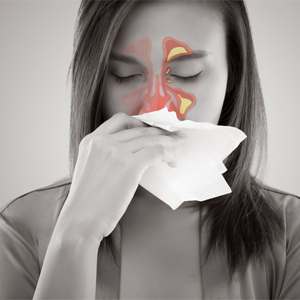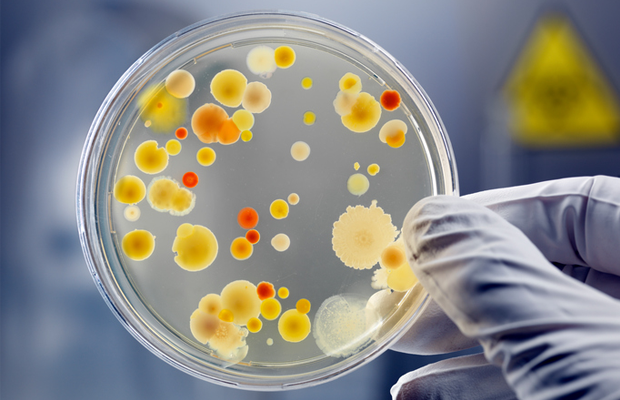
Sinusitis refers to the inflammation of the tissue lining the sinuses and if you've ever suffered from a sinus infection, you'll know how uncomfortable and painful it can be.
Here are three causes of sinusitis you might not have known about:
1. Bacteria
A sinusitis infection can be caused by a bacterial infection. For Gayle Adamson, sinus disease affected her for practically her entire life. She tried many different types of medication and even had surgery to remove polyps. Nothing worked. She was eventually referred to Dr Samer Fakhiri, a faculty member at the UTHealth Otorhinolaryngology Texas Sinus Institute and staff member at Memorial Hermann-Texas Medical Center.
“When I reviewed Gayle’s medical record, it was apparent that my otolaryngology colleague had done an excellent job of managing her condition,” he told UTHealth. “His intuition was correct that there might be something unusual in her disease process. When I examined her, it became immediately clear to me that her current problem was not the typical post-sinus surgery issue. I identified an area of exposed bone with associated infected material in the back of her nasal septum and sphenoid sinus.”
Dr Fakhri sent a culture off for testing – Adamson had Mycobacterium abscessus, a bacterium distantly related to those that cause tuberculosis and leprosy. Once the bacteria were identified, she received treatment and finally experienced relief.

2. Swimming or diving
Chlorine in a swimming pool can cause an irritation or swelling when it gets into your ears or nose, which can result in a sinus infection. When the sinuses swell, mucus becomes trapped and can allow bacteria to grow.
Diving or swimming underwater can also cause sinusitis due to the changes in pressure. According to the New York Sinus Centre, this pressure change affects your sinus canal, which can cause your sinus passages to become blocked, which in turn traps mucus and allows for the growth of bacteria.
If you already have a cold or sinus infection, avoid swimming until it has cleared up – again, the chlorine can aggravate your symptoms and make you feel worse.

3. Smoking
If you smoke and suffer from sinusitis, there is a link – tobacco irritates the nasal passages and lowers the body’s natural resistance. Smoking also irritates the sinus passage, causing swelling and inflammation.
Health24 previously reported on a study that highlighted the connection between smoking and sinusitis – researchers assessed the severity of symptoms and medication used among 103 former smokers with chronic rhinosinusitis and 103 people who had never smoked but also had chronic rhinosinusitis. They discovered that smokers had worse symptoms, and used more antibiotics and oral corticosteroids to treat sinus infections and reduce inflammation than the nonsmokers.
"If patients tell me that they are smoking, I now have direct evidence to say that the same symptoms that are making them miserable are exacerbated further by smoking," said senior study author Dr Ahmad Sedaghat, a sinus surgeon at Massachusetts Eye and Ear Infirmary.
"On the other hand, we can also be optimistic, because we have evidence to suggest that if you quit smoking, things will get better, on the order of 10 years," he added in a hospital news release.

When to see a doctor
If you suffer from sinusitis, this is when you should see your doctor:
- You have cold symptoms that have lasted longer than 10 to 14 days, or worsened over time.
- You have a severe headache that medication, such as acetaminophen, aspirin, or ibuprofen, or a decongestant doesn't relieve.
- You have noticed increased facial swelling or changes to your vision.
- Nasal discharge that changes colour (from clear to yellow or green after five to seven days of a cold) or if other symptoms, such as sinus pain or fever, worsen. If you notice that nasal discharge is coloured from the start of a cold, see your doctor if it lasts longer than seven or 10 days.
- Facial pain, particularly in one sinus area or along the ridge between the nose and lower eyelid, that persists after two to four days of home treatment. If you have a fever and coloured nasal discharge, see your doctor after one to two days.
- If your sinusitis symptoms continue even after you have completed a full course of antibiotics.
Not sure if you're suffering from a cold, sinusitis or flu? Take our test to find out.
Image credit: iStock




 Publications
Publications
 Partners
Partners












